Il Forum
Panoramica
Il Forum riunisce personalità eminenti dell’imprenditoria e della politica, accademici e intellettuali che discutono delle sfide che la regione del Medio Oriente Mediterraneo si trova a fronteggiare. Vengono trattati vari temi, con una grande attenzione all’attualità, come le nuove configurazioni geopolitiche, le dinamiche dei flussi migratori, la sicurezza nel Mediterraneo, la salute e i sistemi alimentari, l’ heritage culturale in pericolo, il partenariato euro-mediterranei, le municipalità della regione. I giovani change-maker hanno la straordinaria opportunità di condividere le loro riflessioni con autorità di spicco ed esperti, presentando il loro punto di vista e le proposte di progetto elaborate prima del Forum.
Quest’anno a causa della pandemia di Coronavirus e delle sue conseguenze, il Summit non può essere tenuto come previsto. Le circostanze hanno comprensibilmente imposto una revisione del formato del MEM Summer Summit 2020. Il Forum è stato trasferito online. L’edizione online del Forum è visibile sotto.
Il Forum 2021
Guarda il Forum 2021
MEM Summer Summit Forum 2021
Guarda il Forum in italiano: MEM Summer Summit – Forum 2021 (italiano)
Scopri i Panel del Forum
Panel 1 – New geopolitical configurations in the MEM region
Turki Al-Faisal, Chairman, King Faisal Center for Research and Islamic Studies, Saudi Arabia
in conversation with
Gilles Kepel, Professor, Università della Svizzera italiana and PSL Paris Sciences et Lettres-École Normale Supérieure, France and Switzerland
Reem Al Otaiba, Young change-maker
Alaa Elaroush, Young change-maker
Chairman: Matteo Legrenzi, Professor, Ca’ Foscari University of Venice, Italy
Panel 2 – The religious sphere in the MEM region
Wasim Salman, Professor, Pontificium Institutum Studiorum Arabicorum et Islamicorum (PISAI), Syria Nayla Tabbara, President of Adyan Foundation, Lebanon
Mario Giro, Sant’Egidio Community, Italy
Hadi Damien, Young change-maker
Chairman: Luca Steinmann, Journalist, Fondazione Federica Spitzer, Faculty of Theology of Lugano, Italy
Panel 3 – Economic development of the region: new harbours and new powers
Giampiero Massolo, President of Fincantieri, President of ISPI, Italy
Pascal Ausseur, Vice-Admiral and General director of Institut Fondation méditerranéenne d’études stratégiques, France
Karim El Aynaoui, Faculté de Gouvernance, Sciences Economiques et Sociales, Policy Center for the New South, Morocco
Inbal Perlman, Young change-maker
Chairman: Luca Fasani, Journalist, RSI Radiotelevisione svizzera, Switzerland
Panel 4 – Rethinking the food systems in the MEM region
Marylaure Crettaz Corredor, Head Global Programme Food Security, Swiss Agency for Development and Cooperation, Switzerland Giorgio Marrapodi, Director General for Development Cooperation, Ministry of Foreign Affairs and International Cooperation, Italy Pio Wennubst, Ambassador, Permanent Mission of Switzerland to the United Nations organisations in Rome, Switzerland
Amin Emadi, Young change-maker
Chairman: Emiliano Albanese, Professor, Università della Svizzera italiana, Switzerland
Conversation on Cinema across borders
Giona Nazzaro, Artistic Director, Film Festival Locarno, Switzerland
Bassel Ghandour, Film Director, Jordan
Forum 2021 Programma
Il Forum del MEM Summer Summit sarà trasmesso online 28 agosto dalle 10:00. Il programma completo sarà disponibile a breve.
This panel explores the current configurations of the MEM region, in particular the Abraham Accords and the new direction of the Biden administration in the region.
2020 will be remembered as the year of the COVID-19 pandemic and the oil price collapse, and one which witnessed all sorts of unexpected turmoil, reaching from the Middle East Mediterranean region to the European suburbs. Fragmentation occurred in the Israeli-Palestinian conflict. On the one hand, the signing of the Abraham Accords, which include the United States, the United Arab Emirates, Morocco and Sudan, Israel, aggregating Egypt and Saudi Arabia, and with an eye on Iraq. On the other hand, the “Brother-Shia axis” brings together Gaza, Qatar, Turkey, and Iran with the ad-hoc support of Russia. During these seismic upheavals, Beirut exploded and refugees and illegal migrants flocked to Europe; the Turkish president, Erdogan, wants to make Istanbul the global centre of Islam. 2021 is the year that has marked the Pope’s visit to Iraq, the resurgence of the Israeli-Palestinian conflict described by Professor Kepel as “the eleven-day war”, the worsening of the socio-economic crisis in Lebanon, political instability and lack of governance in Tunisia, the withdrawal of the United States from the region and Afghanistan where the Taliban have regained territory and power. 2021 is also a year of recurrences: ten years have passed since the Arab Spring and the conflict in Syria; twenty years since the terrorist attacks of September 11, which radically shattered international relations. How terrorism has changed during these years and where the Middle East Mediterranean region is going are two complex issues that will be addressed during the MEM Summer Summit 2021.
Analytics tools will be provided to analyse the region’s complexity: current configurations will be put into the context of global history, to stimulate a broad reflection on contemporary challenges. This evolving region has, in fact, a significant impact on international dynamics, on Europe and its political structures.
The key-note speech at the MEM Summer Summit 2020 of French President Emanuel Macron was structured around four pillars, including religion. This panel offers an analysis of the fragmentation and pluralisation of the religious sphere, the individualisation of religion and the controversial relationship between religion and politics in the region. The Abraham Accords and the visit of Pope Francis to the UAE in 2019 and to Iraq in 2021 seem to open a space for interfaith dialogue in the region. Could the encounter between different religions and between different ethno-confessional groups be instrumental in overcoming conflicts? Could the encounter between different religions be a valid means to mend the torn Syrian social fabric? Can it foster greater internal stability that contrasts with growing poverty and halt the massive exodus of young people?
Ports such as Ceuta, Tangier, Djen-Djen, Bizerte, Damietta or Port Said are a new generation in the Mediterranean and will surely change the map of transport and economy in the south of this region. The growth of seaports is not enough to adapt to the accelerated rate of economic growth, but new concepts, such as logistic chains, have to be applied to understand the new relationship between peoples, territories, economies and movement of goods. The oil price collapse of 2020 pushed the oil producers to promote an energetic transition towards more sustainable sources. Furthermore, the emergence of new actors in the Mediterranean region has resulted in new economic, military, and ideological power struggles with a change in the region’s patterns of interstate conflict and cooperation.
This panel is organised in partnership with the Swiss Agency for Development and Cooperation and the Permanent Representation of Switzerland at the United Nations in Rome, in continuity with Transfoodmation project. The MENA food system is becoming increasingly more complex. Climate change, population growth, shifts towards urban living and the adoption of Western diets bring mutually reinforcing challenges. The MEM region has one of the highest rates of population growth worldwide and a rapidly growing urban population, with 66% expected to be living in cities by 2030. Food insecurity is one of the main drivers of unrest and conflicts in the MEM region. In addition to that, water scarcity and climate change are common challenges in the region. “The 2021 UN Food Systems Summit” will seek to engage donors and the international development community to transform food systems such that they are inclusive, sustainable, healthy and resilient, and in line with the Sustainable Development Goals.
Conversation between the Artistic Director of the Locarno Film Festival Giona Nazzaro and the Jordanian Film Director Bassel Ghandour on the importance of co-production in cinema and changing narratives in the region. Bassel Ghandour talks about his film “The Alleys” that was premiered during this year’s edition of the Locarno Film Festival.
L’emergenza sanitaria Covid-19 e le misure di contenimento adottate dai vari Paesi, a livello globale, hanno determinato, come noto, il crollo dei prezzi del petrolio con importanti ripercussioni economiche, politiche e sociali. L’era del potere incontrastato delle petromonarchie del Medio Oriente potrebbe volgere presto al termine. In questo contesto la Libia, lacerata da divisioni tribali interne e al centro di interessi internazionali, offre importanti spunti di riflessione sul presente e futuro dei Paesi produttori di petrolio. Il panel ospita speaker dell’industria petrolifera e della cantieristica che hanno delineato la situazione attuale e i possibili scenari futuri.
Pio Wennubst ha parlato dell’iniziativa “Bites of Transfoodmation”, organizzata dalla rappresentanza permanente della Svizzera alla FAO, IFAD e WFP, dal 20 al 24 ottobre 2020 a Roma, che metterà insieme giovani innovatori per riflettere del futuro dei food system. La regione del Medio Oriente Mediterraneo, in cui il cibo e la sua produzione rivestono un ruolo culturale e socio-economico straordinaria, è investita dal cambiamento climatico, dal incremento dell’urbanizzazione, dall’aumento dei prezzi dei beni primari.
Lingue
Inglese e francese, con i sottotitoli in italiano.
Relatori 2021
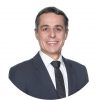
S.E. IGNAZIO CASSIS
Capo del Dipartimento degli affari esteri (DFAE), Svizzera
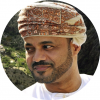
S.E. SAYYID BADR BIN HAMAD BIN HAMOOD AL BUSAIDI
Ministro degli Affari Esteri del Sultanato dell’Oman, Oman
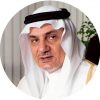
S.A.R. PRINCE TURKI AL FAISAL
Presidente, Centro di ricerca e studi islamici King Faisal, Arabia Saudita
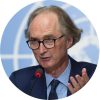
GEIR O. PEDERSEN
L’inviato speciale delle Nazioni Unite per la Siria, Norvegia
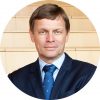
BOAS EREZ
Rettore, Università della Svizzera italiana, Svizzera

GILLES KEPEL
Professore, PLS Paris Sciences et Lettres-École Normale Supérieure, Francia; Università della Svizzera italiana, Svizzera

EMILIANO ALBANESE
Professor, Università della Svizzera italiana; Direttore, Centro Collaboratore dell’OMS per la ricerca e la formazione in salute mentale, Università di Geneva, Svizzera
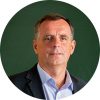
PASCAL AUSSEUR
Vice Ammiraglio e Direttore Generale dell’Institut Fondation méditerranéenne d’études stratégiques, Francia
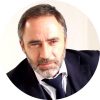
PATRICE BERGAMINI
Vicepresidente, Affari Pubblici e Contratti Governativi Business Development di CMA CGM Group, Francia

MARYLAURE CRETTAZ CORREDOR
Responsabile, Programma globale Sicurezza alimentare, Direzione dello sviluppo e della cooperazione, Svizzera
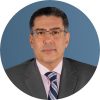
KARIM EL AYNAOUI
Faculté de Gouvernance, Sciences Economiques et Sociales, Policy Center for the New South, Marocco

BASSEL GHANDOUR
Regista, Jordan
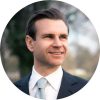
MATTEO LEGRENZI
Professore, Università Ca’ Foscari Venezia, Italia
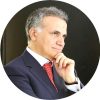
GIORGIO MARRAPODI
Direttore Generale per la Cooperazione allo Sviluppo, Ministero degli Affari Esteri e della Cooperazione Internazionale, Italia
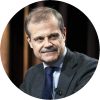
GIAMPIERO MASSOLO
Presidente di ISPI (Istituto per gli Studi di Politica Internazionale), Presidente di Fincantieri, Italia
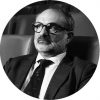
GIONA NAZZARO
Direttore Artistico, Film Festival Locarno, Svizzera

DIANA SEGANTINI
Consulente per Arte, cultura, patrimonio e media, Svizzera
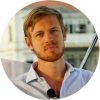
LUCA STEINMANN
Giornalista, Fondazione Federica Spitzer, Facoltà di Teologia di Lugano, Italia

NAYLA TABBARA
Presidente, Adyan Foundation, Libano
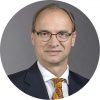
PIO WENNUBST
Rappresentante permanente, Missione permanente della Svizzera presso le organizzazioni delle Nazioni Unite a Roma, Svizzera
Guarda l'ultima edizione del Forum online
MEM Summer Summit Forum 2020
Il discorso di Emmanuel Macron durante il MEM Summer Summit 2020
Il Presidente francese Emmanuel Macron è intervenuto, in un video messaggio, sull’importanza della regione del Medio Oriente e del Mediterraneo e sui suoi equilibri politici, con particolare attenzione ai conflitti in Siria e Libia e alla crisi in Libano. L’analisi del Presidente francese – che si appella alla responsabilità collettiva per trovare soluzioni condivise – è strutturata in quattro assi: religioso, demografico, energetico e politico.
Informazioni pratiche
Transporti
In treno: Lugano è una delle principali fermate sull’asse principale europeo nord-sud e può essere raggiunta da molte città europee con collegamenti ferroviari diretti diurni o notturni. Verifica qui i treni e gli orari di partenza aggiornati da/per Lugano.
In aereo: è il modo più rapido per raggiungere Lugano dall’estero. Qui di seguito la lista degli aeroporti vicini:
- Da Milano Malpensa: La linea S50 è il collegamento che unisce il Ticino all’aeroporto di Malpensa. Verifica qui i treni e gli orari di partenza aggiornati. Si possono prenotare i bus diretti su richiesta. Per prenotazioni contattate +41 79 133 53 23 (Giosy Tours).
- L’aeroporto di Lugano è servito da Swiss International Air Lines. Dall’aeroporto, è possibile prendere un bus navetta per il centro città o utilizzare un servizio di taxi.
- Aeroporto di Zurigo: in alternativa è possibile considerare un volo per Zurigo e poi un collegamento ferroviario per Lugano (circa 2 ore di viaggio). I treni diretti dalla stazione centrale di Zurigo a Lugano sono numerosi. Questa è un’occasione per sperimentare il tunnel ferroviario più lungo d’Europa che attraversa il San Gottardo.
Visti
Per entrare in Svizzera i cittadini dell’UE/AELS necessitano di una carta d’identità o di un passaporto valido. Si raccomanda ai cittadini di altri Stati di verificare i requisiti in materia di visti presso l’ambasciata o il consolato del proprio paese.
Promemoria entrata nello spazio Schengen e procedura del visto.
Tempo libero
La sua bellezza naturale, la diversità dei suoi paesaggi, il clima mediterraneo, la sua ricchezza culturale e l’offerta variegata di attività ricreative fanno di Lugano e di tutto il Ticino una delle mete più popolari della Svizzera.
Per ulteriori informazioni: https://www.luganoregion.com/it
